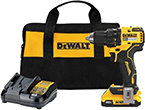Electrical Safety Strategies
Written by Lee Wyatt (last updated November 16, 2020)
In the world of home improvement, perhaps the single most stressful and dangerous item to work with is electricity. That being said, there are some electrical safety strategies that you can use to make the whole experience as safe as possible. What may surprise many people is that these strategies and ideas are largely common sense. But, as the old saying goes: "Common sense isn't common."
- Have a guide book. Whether you are doing a project that you have done a thousand times before, or you are trying something new, make sure that you have a guidebook with you. These books, or checklists, can be utilized to ensure that you are doing the project correctly, and help you make sure that you do not miss any steps. Always have one of these on hand from the very beginning of your project.
- Verify everything. Never assume that the wires are hooked up correctly. This means that you should always test to make sure which wires are hot, and which ones are grounded. You can use a simple voltmeter to do this usually, but this should be done before you actually begin doing the work.
- Check your circuit breaker. Before you begin doing any work, make sure that your circuit breaker can actually handle the capacity of the new project. Perhaps the simplest way to do this is to find on each device that you will be attaching to the circuit breaker what the watts and amps used are, add them all together, and then make sure that you stay under what the max amount is.
- Always shut off power. One of the best ways to that you can assure that you do not get hurt while working with electricity, is to shut off all the power to the area that you are working on. The best way tot do this is to cut off the power at the circuit breaker itself. If there is no power going to that specific area that you are working on, then you can't really get electrocuted, can you?
- Leave signs. When you cut off the power at the circuit breaker, make sure that you leave a note for other people to see. A simple note is all that you need, something that says "Working on wires, Don't Touch!" will suffice. This way people will not inadvertently turn the power back on and you get hurt.
- Use protective gear. Always wear protective gear when working with electricity. Some examples of this are to wear rubberized gloves and rubber soled shoes. In addition, always use tools that have a rubberized handle. The rubber will act as an insulator, and help protect you from any shocks.
- Always ask questions. If, as you are working on a project, you find that you have a question then you need to stop. Do not continue working on a project you don't know how to complete. Find someone and ask a question, or refer back to your guidebook.
Author Bio
Lee Wyatt
Contributor of numerous Tips.Net articles, Lee Wyatt is quickly becoming a regular "Jack of all trades." He is currently an independent contractor specializing in writing and editing. Contact him today for all of your writing and editing needs! Click here to contact. Learn more about Lee...
Replacing a Light Switch
Replacing a light switch is one of the easiest of home electrical repairs that can be done Here is how you can get ...
Discover More
Planting and Growing Lavender
Lavender is a beautiful bush that not only can add some great color to your garden, but also provide some fantastic ...
Discover More
How to Read Your Water Meter
Have you ever wondered how to read your water meter? Well, it's not all that difficult, and you can even track your own ...
Discover More
More Home Improvement Tips
Selecting a Low Voltage Lighting System
Just because you want some lighting outside doesn't mean that you have to be using a whole lot of energy to do it. One of ...
Discover More
Home Theater Systems
Do you want a home theater system that is going to make you the envy of your friends? How about one that can make your ...
Discover More
Solar Lights for Exterior Accents
If you've been contemplating accenting your yard with lighting, you may want to consider using solar lighting. Easy to ...
Discover More

Comments